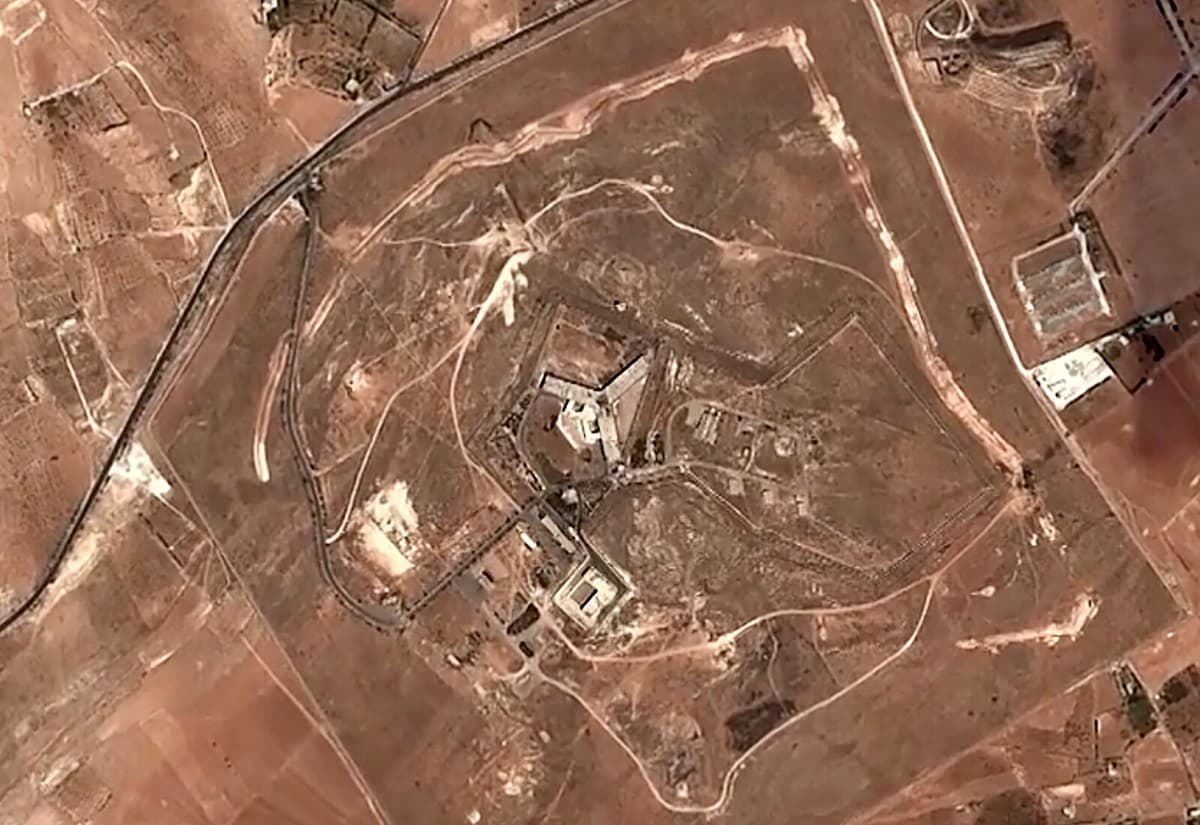Thousands of people are believed to be trapped in underground cells in the regime's military prison Saydnaya.
The oppositional civil defense group White Helmets reports on X that they have sent several teams to the prison outside Damascus after the reports.
The prisoners risk being suffocated to death due to the lack of ventilation in the underground, warn the authorities in the province of Rif Dimashq. On social media, they appeal to former prison guards to assist with codes to electronic doors to be able to free the thousands of prisoners who can be seen via camera surveillance, reports BBC.
The Guardian's reporter on site describes dark tunnels and narrow cells just a few meters behind heavy vaulted doors. On the walls, there are messages of despair. "Tab, khadni", reads one: "It's enough now, just let me die".
"He has fallen"
Videos of prisoners who have already been freed are circulating on social media. In one clip, a woman is seen being freed together with a small child.
He (al-Assad) has fallen. Don't be afraid, a voice assures the woman in the video.
In other clips, crowds are seen gathering outside the prison to see if their relatives are among those freed. Some take the opportunity to enter, desperately running through dark corridors in the hope of finding loved ones.
Under dictator Bashar al-Assad's brutal rule, tens of thousands of political prisoners are said to have been executed in extrajudicial mass hangings in the notorious Saydnaya, described by Amnesty International as a "human slaughterhouse". Thousands more are believed to have died as a result of starvation, torture, and lack of care.
13 years of torture
Syrian Safi al-Yassin, who was recently freed from a prison in Aleppo, was arrested during a demonstration in connection with the Arab Spring in 2011. He was then subjected to severe physical and psychological torture within the regime's extensive prison system for 13 years, he tells Qatar-based Al Jazeera.
The year he spent in Saydnaya is impossible to describe, he adds.
Those scenes I will not be able to erase from my retina as long as I live.
Omar Alshogre, who has lived in exile in Sweden since 2015, has repeatedly testified about the torture and inhumane treatment he suffered in the prison. When he was released after a mock execution, he weighed 34 kilos.
They forced my cousin, whom I loved so much, to torture me and me to torture him. Otherwise, we would both be executed, he told BBC over the weekend.
Syria has been ruled as a dictatorship by the al-Assad family, belonging to the country's Alawite minority, for decades.
Even before the Arab Spring began in 2011, hundreds of people were estimated to be imprisoned for political reasons. The number of prisoners increased during the subsequent civil war to tens of thousands. Many "disappeared" after being taken away by security forces, likely to be imprisoned or killed.
According to an Amnesty report released in 2017, between 2011 and 2015, up to 13,000 Syrians were executed in the military prison Saydnaya outside Damascus, many of them critics of Bashar al-Assad's regime.
Reports of torture, abuse, and sexual assaults in the prison are countless. Survivors have told of daily torture, rapes, and electric shocks. The cells were often so overcrowded that prisoners were forced to stand up 24 hours a day.
Source: The Swedish Institute of International Affairs, Amnesty International






